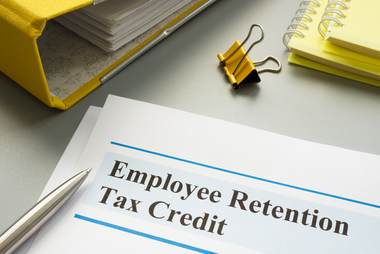In the last month, the IRS announced that due to “deep concerns about dubious Employee Retention Credit claims being submitted, they have slowed the processing of these claims to guard against fraudulent or incorrect submissions.”
In 2020, Congress created the Employee Retention Tax Credit as a response to the coronavirus pandemic. The goal of the credit was to reward employers for keeping workers employed. Eligible employers can get up to $26,000 per employee. In order to be eligible, the company either had to have declines in revenue or had their operations suspended by either national or local government orders. The rules for the credit changed several times and the tax break expired in the 3rd quarter of 2021. In order to request the credit, companies must file amended payroll tax returns and have three years from the initial filing to amend the forms and claim the credit.
This credit created a cottage industry of consulting firms that were formed to assist companies applying for the credit. Some of these firms encourage employers to request the credit, even if qualification is questionable. Many of these entities advertise heavily and persistently contact employers. Most earn their fees by taking a percentage of the credit, which is an incentive to stretch the eligibility criteria.

According to the IRS, as of March 2023, the agency has paid out more than $150 billion in ERC refunds. The Treasury Department estimates that another $70 billion has been paid between April and July 2023. This proliferation of claims has caused the IRS to issue warnings over the past few months about fraudulent and overstated claims for the credit. For these reasons, the IRS has slowed the payment of this tax refund, as the agency struggles to combat many possible fraudulent and overstated claims. The IRS is likely facing years of disputes and litigation, as it tries to claw back some of the refunds it had previously issued.
In the last month, the IRS announced that they are “Deeply concerned about small businesses being scammed and dubious Employee Retention Claims being submitted amid aggressive marketing to the business community.” They therefore said that they have, “slowed the processing of these claims to guard against fraudulent or incorrect submissions, as we work to enhance our procedures and controls to best protect small business owners and taxpayer dollars.” The announcement marks the government’s biggest step to rein in the myriad of employee retention tax credit advisers that have emerged over the past few years.
At LMC, many clients have applied for the ERC and a significant amount have already received their credits. However, for those who are waiting, the wait might have just gotten a little longer.



